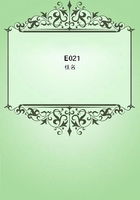
第30章
I say, _do not choose_; but that is a figure of speech by which I would distinguish what is commonly called _choice_ among men, and which is a partial act, the choice of the hands, of the eyes, of the appetites, and not a whole act of the man. But that which I call right or goodness is the choice of my constitution; and that which I call heaven, and inwardly aspire after, is the state or circumstance desirable to my constitution; and the action which I in all my years tend to do, is the work for my faculties. We must hold a man amenable to reason for the choice of his daily craft or profession.
It is not an excuse any longer for his deeds, that they are the custom of his trade. What business has he with an evil trade? Has he not a _calling_ in his character.
Each man has his own vocation. The talent is the call. There is one direction in which all space is open to him. He has faculties silently inviting him thither to endless exertion. He is like a ship in a river; he runs against obstructions on every side but one; on that side all obstruction is taken away, and he sweeps serenely over a deepening channel into an infinite sea. This talent and this call depend on his organization, or the mode in which the general soul incarnates itself in him. He inclines to do something which is easy to him, and good when it is done, but which no other man can do. He has no rival. For the more truly he consults his own powers, the more difference will his work exhibit from the work of any other.
His ambition is exactly proportioned to his powers. The height of the pinnacle is determined by the breadth of the base. Every man has this call of the power to do somewhat unique, and no man has any other call. The pretence that he has another call, a summons by name and personal election and outward "signs that mark him extraordinary, and not in the roll of common men," is fanaticism, and betrays obtuseness to perceive that there is one mind in all the individuals, and no respect of persons therein.
By doing his work, he makes the need felt which he can supply, and creates the taste by which he is enjoyed. By doing his own work, he unfolds himself. It is the vice of our public speaking that it has not abandonment. Somewhere, not only every orator but every man should let out all the length of all the reins; should find or make a frank and hearty expression of what force and meaning is in him. The common experience is, that the man fits himself as well as he can to the customary details of that work or trade he falls into, and tends it as a dog turns a spit. Then is he a part of the machine he moves; the man is lost. Until he can manage to communicate himself to others in his full stature and proportion, he does not yet find his vocation. He must find in that an outlet for his character, so that he may justify his work to their eyes. If the labor is mean, let him by his thinking and character make it liberal. Whatever he knows and thinks, whatever in his apprehension is worth doing, that let him communicate, or men will never know and honor him aright. Foolish, whenever you take the meanness and formality of that thing you do, instead of converting it into the obedient spiracle of your character and aims.
We like only such actions as have already long had the praise of men, and do not perceive that any thing man can do may be divinely done. We think greatness entailed or organized in some places or duties, in certain offices or occasions, and do not see that Paganini can extract rapture from a catgut, and Eulenstein from a jews-harp, and a nimble-fingered lad out of shreds of paper with his scissors, and Landseer out of swine, and the hero out of the pitiful habitation and company in which he was hidden. What we call obscure condition or vulgar society is that condition and society whose poetry is not yet written, but which you shall presently make as enviable and renowned as any. In our estimates, let us take a lesson from kings.
The parts of hospitality, the connection of families, the impressiveness of death, and a thousand other things, royalty makes its own estimate of, and a royal mind will. To make habitually a new estimate, -- that is elevation.
What a man does, that he has. What has he to do with hope or fear? In himself is his might. Let him regard no good as solid, but that which is in his nature, and which must grow out of him as long as he exists. The goods of fortune may come and go like summer leaves; let him scatter them on every wind as the momentary signs of his infinite productiveness.
He may have his own. A man's genius, the quality that differences him from every other, the susceptibility to one class of influences, the selection of what is fit for him, the rejection of what is unfit, determines for him the character of the universe. A man is a method, a progressive arrangement; a selecting principle, gathering his like to him, wherever he goes. He takes only his own out of the multiplicity that sweeps and circles round him. He is like one of those booms which are set out from the shore on rivers to catch drift-wood, or like the loadstone amongst splinters of steel.